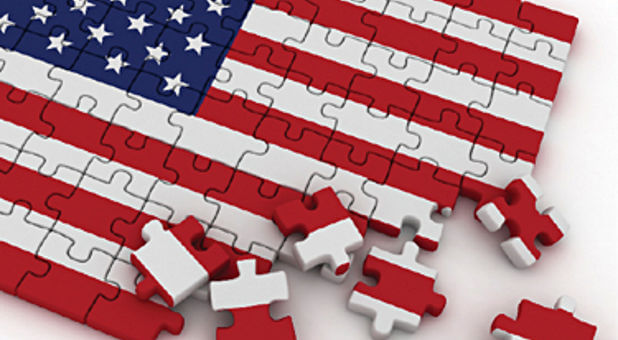Glimmers of Unity
At the same time, the progress of secularism has started to bring believers together. People of faith have encountered each other in recent years over issues such as abortion and marriage.
Praying outside Planned Parenthood offices, orthodox Catholics have found they have more in common with faithful Lutherans than with liberal Catholics who think like secularists. While campaigning for a state referendum on marriage, Southern Baptists have joined forces with Pentecostals they used to avoid. At crisis pregnancy centers, staunch Calvinists have discovered they have more in common with evangelical Methodists than with liberal Presbyterians. Recently, Catholics and Protestants have stood together to oppose the Health and Human Services mandate.
It’s sad that it has taken aggressive secularism, abortion on demand, and a frontal attack on marriage and religious freedom for Christians to discover that we have much in common.
We need to go beyond defensive alliances on public policy, however, and strive for a deeper and more lasting unity. We have serious doctrinal disagreements, but we share core beliefs and moral principles and worship the same God. If believers stand on these foundations, we can help fulfill Jesus’ prayer for our unity, even though we still may disagree in some areas.
In the last couple of years, the two of us—an evangelical and a Catholic—have met with scores of Catholic and Protestant leaders, and spoken to thousands of Christians around the country. Over and over, we have heard the same thing: The Holy Spirit seems to be drawing together all of those in the Judeo-Christian tradition despite our differences.
We’re convinced that God wants to pour His Spirit on the church for the good of our entire culture. Jesus would never have prayed for His followers to be one with Him and perfected in unity if it were impossible or unimportant. Oneness is not sameness. In fact, diversity grounded in unity can be an asset.
Paul also challenged the church at Ephesus to make “every effort to preserve the unity of the Spirit in a bond of peace” (Eph. 4:3). Unity is a sign of the kingdom of God; in our division we have reduced that kingdom to a future reward rather than a living, present reality. It’s no surprise that we have not shaped our culture like we should have.
If we are to be salt and light for our culture, we must be able to understand and explain the sources of the darkness with a consistent voice. Let us pray that we can, by our unified public witness, preserve the good in our culture. Let us also pray that we can expose the bad and give guidance to those who are headed for disaster.
Our future is at stake. It’s not too late, but it is later than most people think.
James Robison is the founder and president of LIFE Outreach International in Fort Worth, Texas. Jay W. Richards is director of the Center on Wealth, Poverty and Morality at the Discovery Institute in Seattle. They adapted this article from their new book, Indivisible. Copyright © 2012 by James Robison and Jay W. Richards. With permission from FaithWords. All rights reserved.












































